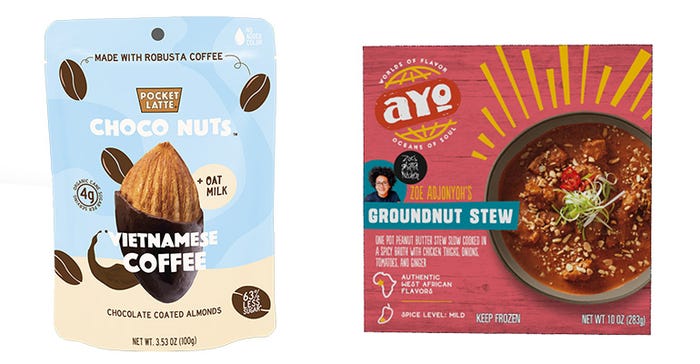
The word “trend” is a tricky one. It implies not only what’s happening now—what tendencies are driving consumers and where they’re putting their dollars—but also what the market should consider for the future of manufacturing, stocking, merchandising and more.
We at New Hope Network believe it’s critical to explore the “why” behind trends. (Yes, we too have been guilty of the occasional trend-spotting foible over the years: Spirulina lavender cricket bars, anyone?) The why, or “macro forces,” are most relevant to shaping the future of natural products and have their origins in three paradigm-shifting “cultural forces” we identify as “Purpose-driven Commerce,” “Holistic Health and Well-being” and “Modern Life.” Zoom in even further and within these macro forces are more nuanced trends that help indicate how the industry is innovating.
The In the Aisle section of the Expo East 2022 edition of Natural Foods Merchandiser includes expert analysis from New Hope’s editors, who provide in-depth commentary on 10 newer, still-emerging trends, as well as their market manifestations from Natural Products Expo East exhibitors. These trends provide a glimpse of where the market is going and which trends we predict will continue to shape it in the future.
The natural products industry is making strides when it comes to stepping up to support diversity and inclusivity both in its makeup and whom it serves. There is still much to do.
One thing retailers can do now is take measurable steps to expand supplier diversity. Another is to truly understand and serve their customers. We know from a New Hope Network NEXT Data and Insights Changing Consumer Survey from June 2021, that natural product shoppers are diverse—more so than the longstanding stereotypes about white, middleclass moms would have us believe. In fact, fewer than half of natural consumers identify themselves as Caucasian and more than a quarter are Hispanic.
It’s up to retailers to serve these customers and their communities in a meaningful and culturally relevant way. This means carrying products and brands that meet and understand these customers’ needs. It also means getting rid of the “ethnic” or “international” aisle and the sense of otherness it implies, for good.
Diverse-owned brands that create products inspired by the flavors and ingredients of global cultures hold indisputable appeal for a broad swath of consumers seeking new flavors and experiences while cooking at home—especially since the onset of the pandemic. More importantly, they serve the demographically and culturally diverse population of this country—the one that also shops for natural products.
Retailers should create and implement working roadmaps for supporting, merchandising and stocking these brands as a way to strengthen their own communities, as well as expand access to healthy food in underserved areas. Only then will this industry truly move forward on its goal of bringing more health to more people. It’s not just the right thing to do, it’s good business.

Pocket Latte Vietnamese Coffee Choco Nuts These tasty snacks were inspired by the co-founder’s childhood on her grandparents’ coffee farm in Vietnam and are made using robusta coffee from Vietnam’s central highlands. SRP: $5.99 Booth: 4195
Ayo Foods Groundnut Stew Crafted in partnership with chef Zoe Adjonyoh, this richly spiced stew is the latest in this brand’s line of frozen meals that not only celebrate authentic West African flavors, but also serve communities whose culture and voice has long been excluded from U.S. mainstream grocery. SRP: $5.99 Booth: NPEV Virtual
About the Author
You May Also Like
.png?width=700&auto=webp&quality=80&disable=upscale)


.jpg?width=700&auto=webp&quality=80&disable=upscale)

